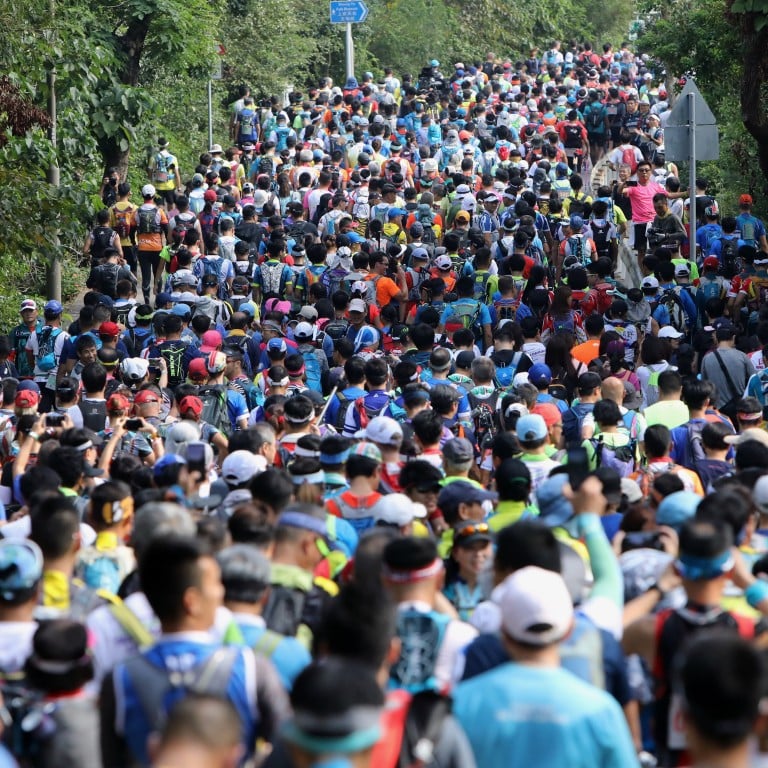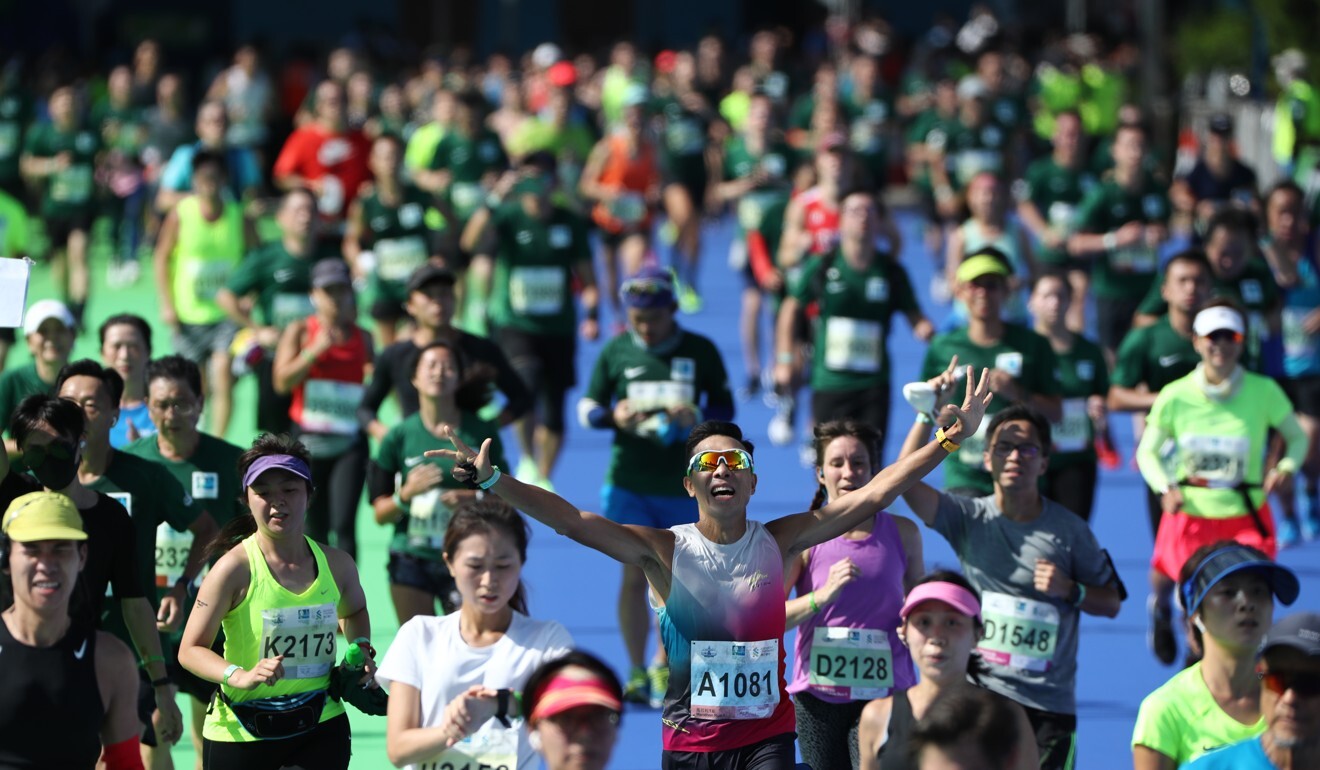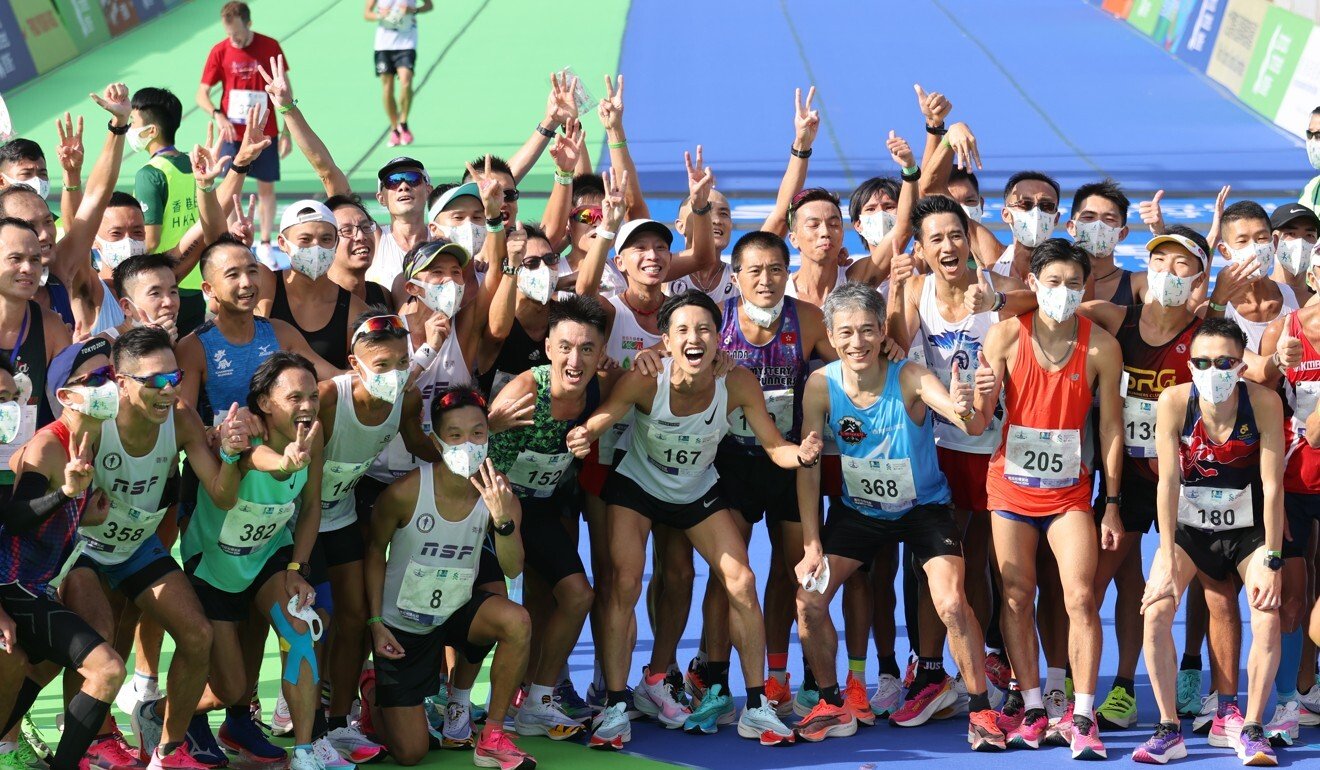
Oxfam Trailwalker denied crowd exemption, showing the government is apathetic or ignorant of Hong Kong’s trail running potential
- Just days after the Hong Kong Marathon, the government deny the Oxfam Trailwalker’s crowd exemption
- Hong Kong is going from strength-to-strength in terms of attracting and producing world class athletes, despite the government’s indifference
Imagine a sporting event where the participants start in waves to spread them out, the entire event is outdoors, the winners finish in 12 hours and the last people finish almost two days later and everyone else is spread out over 100 kilometres in between. It sounds like an event that has been designed to perfectly suit the Covid-19 restricted world.
It shows the government still does not value trail running, despite Hong Kong being the hub for trail racing in Asia. Its growth from a niche to a mainstream sport is a success story with the health benefits of getting outside and the potential for Hong Kong to compete on a world stage in world class events and athletes a particular success.
The Oxfam Trailwalker is a 100km race, which begins in Sai Kung. It follows the MacLehose Trail, and finishes near Tai Tong in the west. Participants run in teams of four and there were 4,600 runners signed up to the 2021 event. The final cut off to finish is 48 hours after the start. It was cancelled in 2019 due to the protests and in 2020 due to associated Covid-19 risks.

It is the largest trail event in Hong Kong, and it introduces hundreds, if not thousands, of new runners to the great outdoors in Hong Kong. It is an incredible showcase of the other side of the city, away from the urban jungle.
The race started as a training exercise for Gurkha soldiers, before it turned into the race we know today in the 1980s (the Hong Kong Marathon has been going since the late 1990s in its modern format and route), so it is steeped in history and holds a special place in the imagination of the city. The winners invariably make the front page of the Post.
Oxfam Trailwalker scrapped after group gathering exemption denied
It’s an important race for many reasons – health, tradition, showcasing Hong Kong for tourism and to continue to facilitate the growing sport.
Above all: it is safe. The government said it denied the exemption because there would be no way to separate the participants from all the other trail users, but the government can no longer hide behind the excuse that we do not understand how Covid-19 spreads.

Trail racing has been on a hiatus since the start of the pandemic. A few races have been allowed recently but it’s a far cry from the crowded race calendar Hong Kong once knew. At least previously the frustration could be tempered knowing that other large-scale events were on hold, but not now after the Marathon went ahead.

To deny the exemption just three weeks before the marquee event of the trail running calendar confirms a near apathy towards what could be – if it isn’t already – one of Hong Kong’s most vibrant and successful sporting industries.
“Although Oxfam Hong Kong continued to respond to requests for details about preventive measures over the past few months and had not received any indication that its application would be rejected, it was unexpectedly and ultimately not approved three weeks before the event,” a press release from Oxfam Trailwalker said.
The organisers are now scrambling to come up with a contingency plan to pitch, with the hope of holding the event sometime between November 22 and December 12.
If the government had any sense of Hong Kong’s community of trail runners, it would be doing all it could to leverage events like the Oxfam Trailwalker for the health of its citizens and as a chance to get more local athletes on podiums worldwide.
Instead, this potential is being wasted as the trail running community is an afterthought to other marquee events.
Thankfully, there is reason to be optimistic: even if the government is blind to the strength of the trail running scene, we know that it is vibrant enough that official apathy is not enough to dampen the flourishing sport long term.

